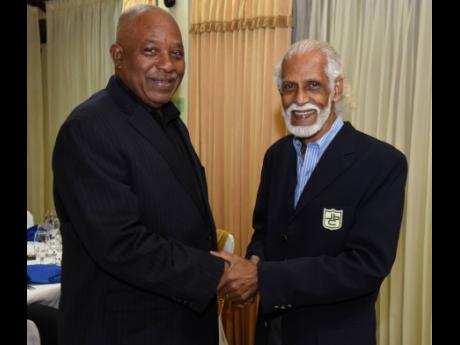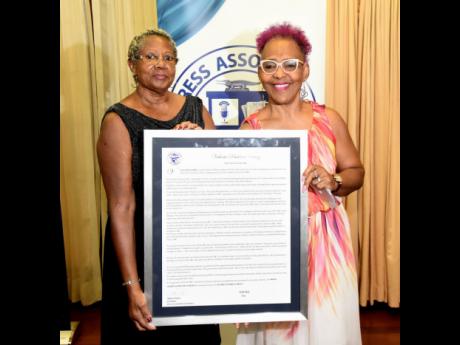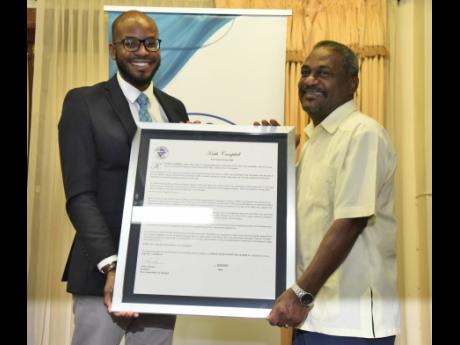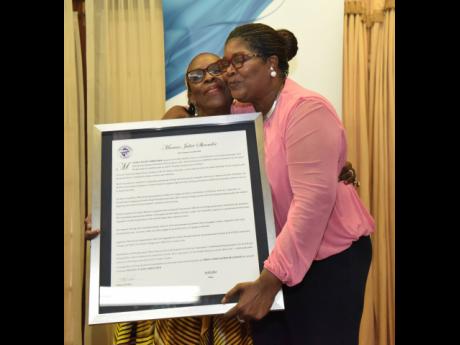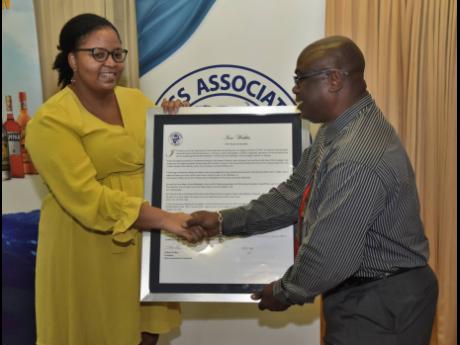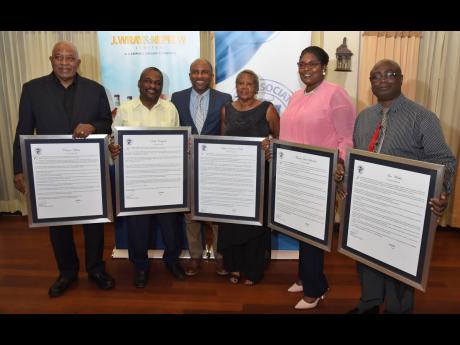Media gatekeepers urged to preserve standards
Media practitioners have been challenged by a state broadcasting chief to “go back to the basics” in ensuring that quality and accuracy are not sacrificed.
“The practitioners of today, including those who are the gatekeepers, editors, we don’t pay attention to quality anymore,” Keith Campbell, CEO of the Public Broadcasting Corporation of Jamaica (PBCJ), said in a Gleaner interview on Wednesday.
He stated that the fast-paced environment of newsrooms and the drive to break news first have caused journalists to neglect fundamentals such as fact-checking.
“Sometimes you hear interviews on TV and radio and you can’t hear it. There was a time when if the sound wasn’t good, the story wouldn’t be used. You would have to do narration or the announcer would read over it ... . There’s not creativity in doing it anymore. It’s just as it happens – just take it as it is,” Campbell lamented.
He elaborated that the call for quality was not limited to cameramen, technicians, videographers, and lighting operators but applied to all industry professionals.
Campbell was speaking on the sidelines of the Press Association of Jamaica (PAJ) Veterans’ Luncheon Wednesday at the Alhambra Inn in Kingston.
Five media veterans, including Campbell, were honoured in the categories of broadcasting, print, public, and private sector.
Campbell said earlier in his address to the luncheon that journalism managers and lecturers should mentor young and emerging media professionals to strengthen the industry amid rapid technological changes.
“While we were working in media at the time, we paid particular attention to quality. We used the right microphones to get the right sound, to ensure that lighting was the appropriate lighting [with] every shot taken, and we ensured that across the board, no matter how small the assignment was or how elaborate it was, we ensured that quality was first and foremost,” he said.
Campbell’s professional career spans approximately 40 years.
His first stint was as president of the television and radio club of his alma mater, St Elizabeth Technical High School in Santa Cruz. Upon graduation, he was recruited to join the staff of the now-defunct Jamaica Broadcasting Corporation (JBC), where he spent 35 years.
He has also served as director of production at the Creative Production and Training Centre; director of television at JBC; programmes, and production manager at Super Supreme Television/Television Jamaica and CVM Television, respectively.
PAJ President Milton Walker said that the organisation deliberately chose persons who were not on the front line, not in front of the camera, or who do not get bylines.
“Nevertheless, our work as journalists would not be possible without their support,” said Walker.
National Journalism Week climaxes Saturday with the PAJ journalism awards ceremony.
The other veterans recognised were:
Valerie Patricia Riley, Jamaica’s first camerawoman:
Riley started working at JBC in September 1972 as a secretary in the scheduling department doing bookings of TV studios and logs for master control. It was her first job out of college.
She was the lone camerawoman of 52 staff members in the operations department.
Pat Riley, as she is known, said she has enjoyed every minute of her job.
lan Watkis, press technician with 27 years at the Jamaica Observer:
Watkis joined a team that was starting a new newspaper in Jamaica in 1995. He brought with him almost 40 years of experience within the printing industry, working as a photo-lithographer on labels, magazines, and boxes.
Watkis recalled the thrill of rivalry with The Gleaner. “It was all worth it when we saw our newspaper on the streets, competing with our biggest competitor,” he said.
Maxine Shrouder, librarian of 35 years at the Jamaica Information Service (JIS):
Shrouder started working at JIS in 1987. After a brief stint at JAMPRESS, she returned to the state news agency, where she has made an indelible mark as a photo librarian/researcher par excellence.
She is currently the supervisor and senior photo librarian at JIS.
Shrouder has demonstrated proficiency in the domain of the JIS photo archives, a repository of significant historical value.
Her research findings have featured in local and international newspapers, books, magazines, and television documentaries.
Clevans Wilson, cameraman, technical director with 47 years of service:
Wilson began his career as a national youth service worker at the Jamaica Broadcasting Corporation (JBC) reference library in 1975.
He spent the next 21 years honing his skills and working on a variety of projects, including general elections, Boys and Girls’ Champs, and the state funeral of Prime Minister Michael Manley.
In 1992, Wilson transitioned into the role of technical director and camera operator. In 2002, he served as a technical director for the World Junior Athletic Championships where he was tasked to operate the switcher, moving between live camera feeds, pre-recorded video, graphics, and audio sources.
He was a technical director at JBC and TVJ from May 1992 until his retirement in 2022. He was also a cameraman for 21 years at JBC.
Wilson earned a Press Association of Jamaica certificate of merit during National Journalism Week for his video coverage of the gas riots in 1999, which he covered along with Michael Pryce as the reporter for JBC TV.
Wilson retired in February 2022 after 25 years with TVJ.

